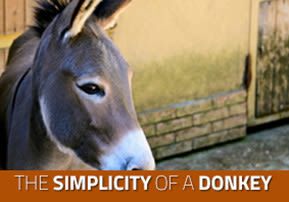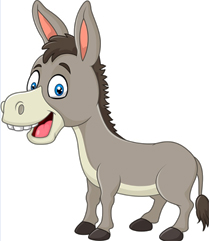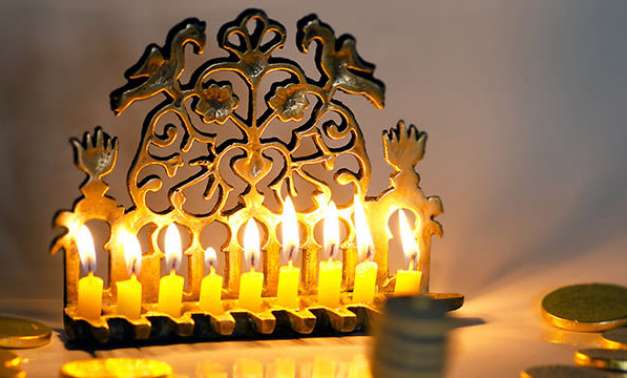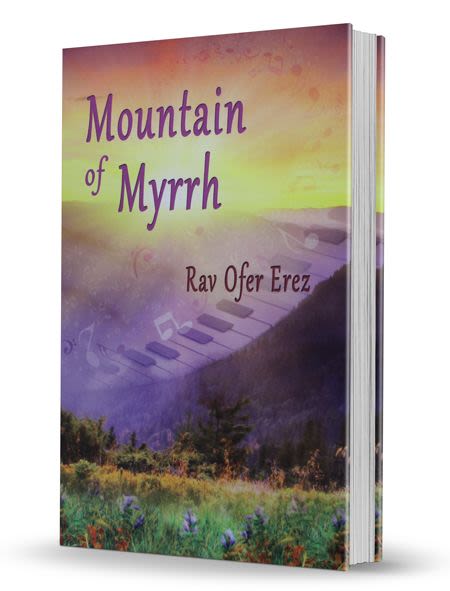
Vayechi: The Simplicity of a Donkey
Why would our forefather Jacob bless one of his sons in such a seemingly uncomplimentary manner? What's so special about a donkey?

“Issachar is a strong-boned donkey…” (Genesis 49:14).
Rashi elaborates on the above passage and says, “A strong-boned donkey that can withstand the yoke of Torah the way a strong donkey shoulders a heavy load.” It seems odd that our forefather Jacob would cloak one of his finest blessings in such an apparently uncomplimentary fashion. Why did he choose the imagery of a donkey?
One of the prerequisites for true success in Torah is character refinement. The same way that a person can plant a crop on a field that hasn’t been plowed, for the seed cannot penetrate the hard, uncultivated ground, the light of Torah cannot penetrate a person who hasn’t “cultivated” himself. Interestingly, Rava offers sound advice to Raba bar Meri and says, “If someone calls you a donkey, then put a saddle on your back.”[1] In other words, if someone insults you, rather than arguing with him, agree with him.
Rava is giving us a rare gem of advice with a double message: first, he who accepts insult without reacting  avoids arguments and strife and therefore earns the title of a peace-seeker, something that Hashem cherishes especially. As a peace-seeker, he earns the additional title of “pupil of Aaron the Kohen” who was the quintessential peace-seeker. Second, he who willingly accepts insult and humiliation shatters the arrogance in his heart. He reacts calmly and says, “You’re right, my friend. I certainly am a donkey and am in dire need of self-improvement. Thank you for calling my attention to this.” This is the reaction of a genuinely humble individual. With this level of humility, he can be called a “pupil of Moses”, for Moses was the epitome of humility.
avoids arguments and strife and therefore earns the title of a peace-seeker, something that Hashem cherishes especially. As a peace-seeker, he earns the additional title of “pupil of Aaron the Kohen” who was the quintessential peace-seeker. Second, he who willingly accepts insult and humiliation shatters the arrogance in his heart. He reacts calmly and says, “You’re right, my friend. I certainly am a donkey and am in dire need of self-improvement. Thank you for calling my attention to this.” This is the reaction of a genuinely humble individual. With this level of humility, he can be called a “pupil of Moses”, for Moses was the epitome of humility.
Consequently, an individual who weathers verbal abuse while avoiding conflict of any sort qualifies as both humble and peace-seeking, indicating that he or she is truly a person of refined character traits. Indeed, they resemble both Aaron and Moses, the two spiritual giants who taught Torah to the Jewish People. Since Hashem especially cherishes the characteristics of humility and peace-seeking, this person not only merits Divine love, but qualifies in receiving Torah directly from Hashem. In measure-for-measure fashion, if a person calls you a donkey and you not only remain silent but avoid an argument as well, then Hashem will turn that donkey into the “strong-boned donkey that can withstand the yoke of Torah”. Hashem has no problem converting curses into blessings, especially for the humble.[2]
In Perek Shira, the donkey merits to praise Hashem with one of the very best passages, one that we say every morning in Shacharit, “To You, Hashem, is the greatness and the might and the triumph and the glory for everything in heaven and earth is Yours; To You, Hashem, is the monarchy and the sovereignty over every leader.” [3] What’s so special about the donkey that he deserves to praise Hashem in such a lofty manner?
Our forefathers preferred the simplicity and humility of the donkey to the pride and lust of a horse. As such, they rode donkeys. The Gemara tells us that the donkeys of such prodigious tzaddikim as Rebbe Chanina ben Dosa and Rebbe Pinchas ben Yair would eat fodder that wasn’t properly tithed.[4] What’s more, Moshiach will arrive on the back of a donkey.[5]
Even though the horse is bigger and faster than the donkey, the horse is also the symbol; of arrogance, lust and thirst for blood. On the other hand, the donkey symbolizes humility and simplicity, perseverance and hard work. These are the traits that our forefather Jacob saw in Issachar and that we hope to see in our children for generations to come, amen!








Tell us what you think!
Thank you for your comment!
It will be published after approval by the Editor.